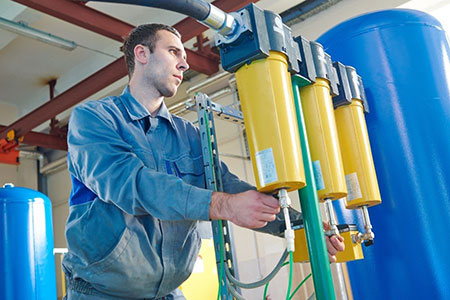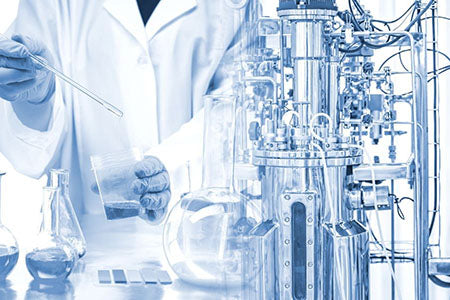Years ago, manual filter presses were the best option, but times have changed. Now, automatic filter presses are the best way to achieve liquid/solid separation for your biological or pharmaceutical needs. Interested in learning more? Read on to discover three benefits of automatic vs. manual filter presses.
What Is a Filter Press?
Before we dive into all the advantages of automatic filter presses, let’s start with a brief overview of what filter presses do. Filter presses use a process known as pressure filtration, where a liquid/solid mixture called a flurry is put under pressure until dewatered. Liquid passes through a filter cloth, but solids cannot—this leaves you with filtered water and a buildup of solids called a filter cake.
Depending on the volume of the slurry in question, you will need a different filter press since each works with a specific volume.
Upgraded Efficiency
One of the biggest problems with any manual process is the potential for human error. When you remove that from the equation with an automatic filter press, you get a safer process that consumes fewer materials.
Reduced Energy Requirements
Likewise, when you upgrade to a process that reduces the amount of labor and error in your facility, you’re left with a lab that is more energy efficient. In turn, this reduces your operational costs and saves you money.
Save Filtration Time
Automatic filter presses cycle more rapidly than manual ones, and you can pair the filter press with an automatic belt wash. This drastically reduces cleaning times which allows your employees to work on other, more important tasks.
Now that you know these three benefits of automatic vs. manual filter presses, you may be wondering where you can get these items yourself! You’re in luck—we have sterile compounding products in stock. If you’d like to learn more about any of our products, you can always feel free to give us a call at (818) 504-8115 or visit our contact page.


